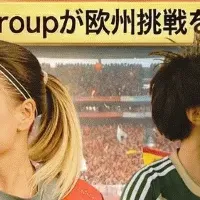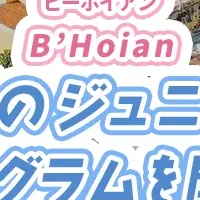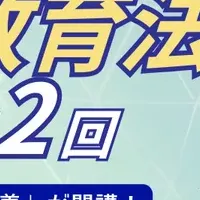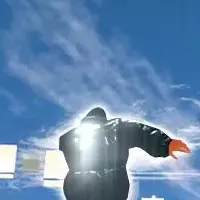
Reju and Nouvelles Fibres Textiles Partner for Circular Textile Waste Ecosystem in France
Reju and Nouvelles Fibres Textiles Collaborate on Circular Textile Waste Ecosystem in France
In a significant step towards promoting sustainability, Reju™, a pioneering textile regeneration company, has announced a partnership with Nouvelles Fibres Textiles (NFT), a French firm focused on the recovery of end-of-life textiles. This collaboration aims to bolster the supply and recycling of textile waste, supporting the establishment of a circular ecosystem in France.
The partnership is set to enhance the landscape of textile recycling by enabling NFT to provide Reju with secondary raw materials sourced from used or unused textiles. These materials will be recycled into Reju Polyester™, a regenerated polyester. The two companies plan to build and improve the infrastructure required for the collection and processing of post-consumer and post-industrial clothing waste. This effort will ensure complete traceability of recycled materials, addressing a critical concern in the recycling industry.
Reju is taking the initiative to develop the necessary framework for large-scale textile waste recovery, beginning with polyester recycling. The company has ambitious goals, targeting a carbon footprint reduction of 50% compared to virgin polyester. Remarkably, Reju Polyester™ can be regenerated indefinitely, creating a more sustainable lifecycle for textile products.
The first operational demonstration plant, called Regeneration Hub Zero, has been established in Frankfurt, Germany. It is projected to facilitate the production of Reju PET by 2025. The materials provided by NFT will be processed at this hub, as well as at future Reju regeneration facilities throughout Europe.
NFT has made strides recently by establishing a semi-industrial site and research center dedicated to textile recycling. Since November 2023, NFT, alongside its partners, has launched a pioneering pilot line that integrates Pellenc ST's automated sorting technology with Andritz's tearing lines. This innovative set-up is capable of processing large volumes of post-industrial and post-consumer textile waste, simplifying challenging aspects and converting them into industrial-quality fibers and raw materials for new recycling technologies like Reju's.
Beyond textiles, NFT supplies secondary raw materials to various industries, including non-wovens, insulation, composites, plastics, and other textiles.
Patrik Frisk, CEO of Reju, stated, "Reju and Nouvelles Fibres Textiles harness innovation and collaboration to expedite the transition toward a circular textile ecosystem. Our valuable partnership highlights our shared commitment to addressing the issue of textile waste and developing new methods to utilize available resources within local supply chains. As textile waste collection becomes mandatory in the European Union starting in 2025, establishing scalable systems and partnerships is crucial to process what is collected and prevent it from ending up in landfills or incineration. Together, Reju and NFT are building the technology and infrastructure necessary for regaining and reusing materials across various sectors, altering our resource utilization patterns."
Eric Boël and Etienne Wiroth, co-directors of Nouvelles Fibres Textiles, noted, "After six years of extensive research and collaborative efforts, Nouvelles Fibres Textiles is now prepared to partner with professionals in need of recycling their textiles. We offer an innovative turnkey solution that transforms heterogeneous streams of end-of-life textiles into uniform, high-quality raw materials while ensuring traceability. Our collaboration with Reju paves the way for a local, less carbon-intensive, and more collaborative circular industry—essentially, an industry that benefits everyone!"
This partnership marks a substantial advance in reducing the carbon footprint of the textile sector. Automated sorting technology was the final missing piece for establishing a complete circular economy in France. It integrates various stakeholders, including brands, social economy players, collectors-sorters, and industrial actors from different sectors, united in their pursuit of greater traceability and meaningful practices in consumer donations and purchases.
For more details on the EU Waste Framework Directive, click here.
About Reju
Reju is a materials regeneration company focused on creating innovative solutions for recycling polyester textiles and PET waste. Owned by Technip Energies and leveraging technology from IBM research, Reju aims to establish a global circular recycling ecosystem that addresses PET plastics within textiles. For more information, visit Reju's website.
About NFT
Nouvelles Fibres Textiles was established through a partnership between Charlieu Weaving Group and Synergies TLC to create the first industrial infrastructure deploying automated sorting and textile recycling solutions from ANDRITZ, incorporating Pellenc ST's sorting technologies. This facility can automatically sort garments based on their composition and color, handling challenging aspects while producing secondary raw materials targeted at industries utilizing textile fibers, such as shredding/spinning and composites. Together with partners ANDRITZ and Pellenc ST, NFT is conducting real productions and applied industrial research to tackle supply chain valuation and sustainability challenges. Additionally, NFT is laying the groundwork for a second preparation plant, projected for 2026, which will have the capacity to process 20,000 to 30,000 tons of post-consumer textiles annually and create around thirty direct jobs.
Topics Other)










【About Using Articles】
You can freely use the title and article content by linking to the page where the article is posted.
※ Images cannot be used.
【About Links】
Links are free to use.